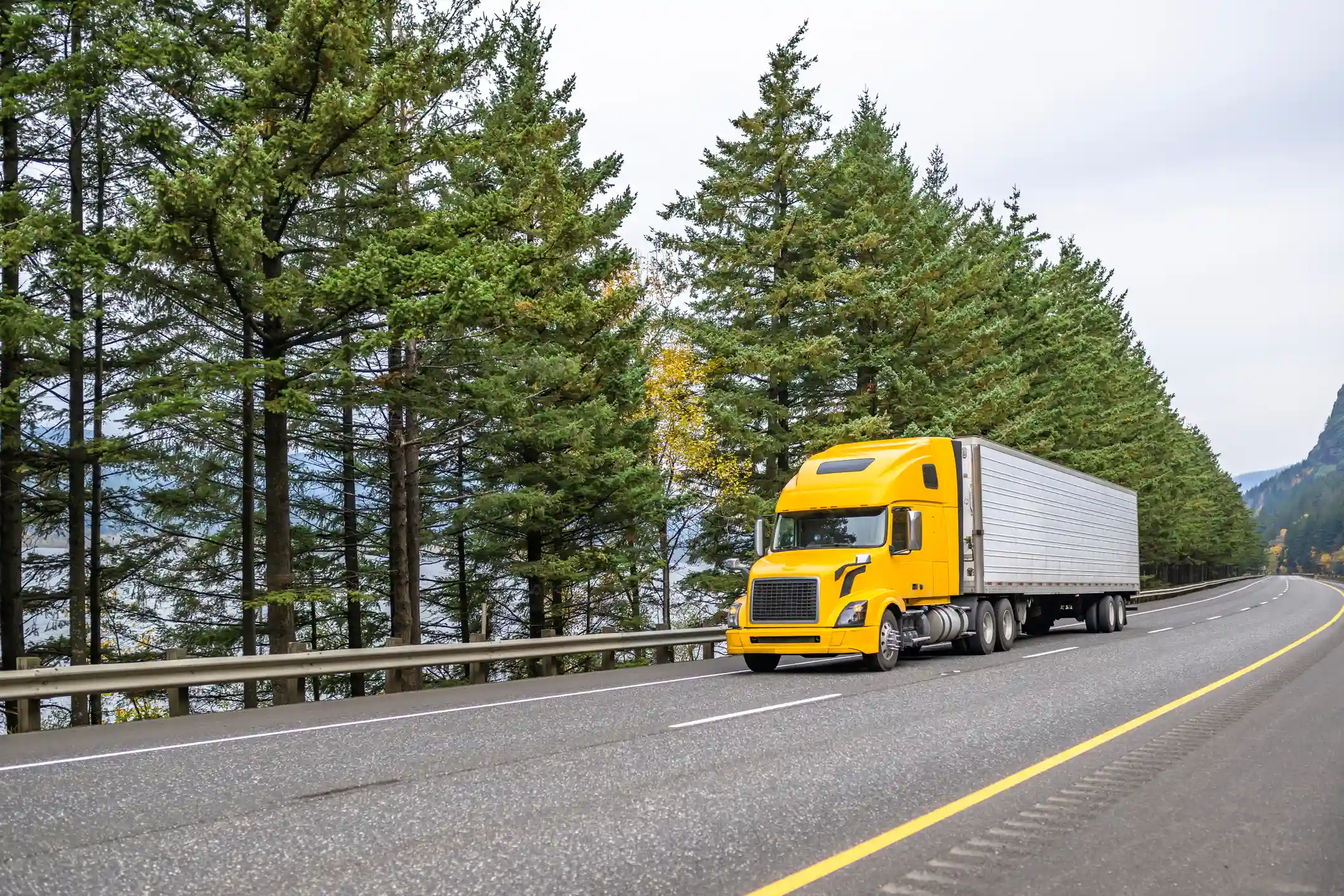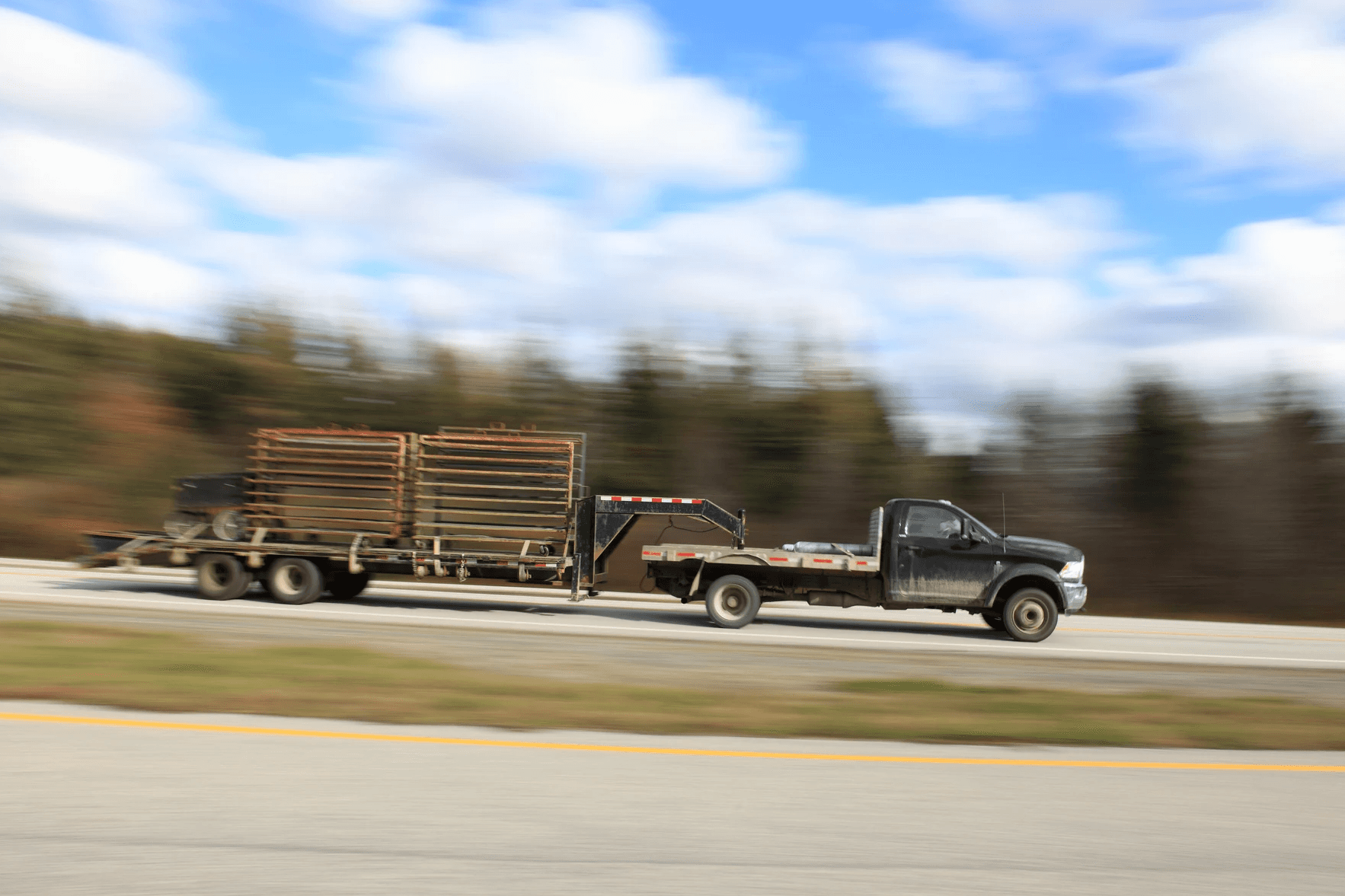Aug 19, 2025
Car Hauler Insurance: How Liability Coverage Keeps You Protected
Liability insurance is the foundation of car hauler coverage, supporting FMCSA compliance, protecting against high-value risks, and strengthening long-term operations.


Car haulers keep the U.S. auto market moving—delivering vehicles from manufacturers to dealerships, auction houses, and private buyers. But hauling multiple passenger vehicles at once isn’t just another trucking job. With high-value cargo stacked on your trailer, even a single incident can escalate into six- or seven-figure losses. That’s why commercial auto liability coverage is the foundation of any car hauler insurance policy.
Below, we break down why liability protection matters most, how costs are calculated, and what independent owner-operators and fleets need to know to stay compliant with FMCSA and state requirements.
The Nature of Car Hauling
A car hauler—whether open or enclosed—presents risks that go beyond standard freight. Each additional vehicle increases the weight, height, and accident exposure of the rig. In an unfortunate event of a collision, the damage is rarely limited to a single car. Liability coverage pays for third-party bodily injury or property damage, which could include:
Medical bills for injured motorists,
Damage to other vehicles on the road,
Infrastructure like guardrails, signs, or bridges.
Without adequate liability limits, a serious accident could put both the operating authority and personal assets at risk. Missing the required threshold can also result in the DOT number being inactivated until proof of insurance is filed.
Car Hauler Insurance Coverage vs. Cargo
One of the biggest misconceptions among newer operators is mixing up liability coverage with cargo coverage.
Liability insurance: Required by law. Covers injuries and damages caused to others.
Cargo insurance: Protects the cars being hauled in case of theft, fire, or damage during transport.
Both are critical to running a sustainable operation, but the FMCSA mandate is focused on liability coverage first. For most auto transport businesses, cargo coverage is a business necessity—especially when hauling dealer fleets or high-value cars—but it doesn’t replace the federal liability minimum.
Car Hauler Insurance Requirements
Car haulers that cross state lines fall under FMCSA minimum liability requirements. Although FMCSA sets a baseline of $750,000 liability for general freight carriers, auto transport falls into a higher-risk category and thus generally requires $1 million in coverage.
On top of federal minimums, brokers and shippers often demand higher liability limits before awarding contracts—sometimes $1.5M or even $2M, particularly for fleets serving dealer auctions or moving luxury vehicles.
Failing to maintain these limits can mean suspended authority, lost contracts, and costly downtime.
Car Hauler Insurance Cost Drivers
“How much is car hauler insurance?” is a common question—and the answer depends on your operation’s risk profile. Premiums typically reflect:
Number of vehicles hauled: A 9-car wedge trailer carries higher exposure than a 2-car bumper pull.
Operating radius: Long-haul, multi-state transport usually brings higher premiums than local runs.
Driver record: Clean MVRs and no recent accidents are key to controlling costs.
Claims history: Even one major liability claim may double renewal rates.
Fleet safety practices: Documented training, maintenance, and ELD compliance can strengthen underwriting outcomes.
According to FMCSA data, crashes involving large trucks and buses accounted for over 4,900 fatalities in 2024 (FMCSA Crash Statistics), a reminder of why liability exposure is taken so seriously by insurers.
Car Hauler Insurance Coverage and Limit Types
Most car hauler operators choose a Combined Single Limit (CSL) policy of $1M or more. A CSL policy applies one total limit per accident, regardless of whether the damages are bodily injury or property damage.
Why it matters:
If a multi-car pileup involves several vehicles on the trailer plus other third-party property, the costs can escalate fast. A $1M CSL gives broader protection than split limits (e.g., $500k per person, $750k per accident) and reduces the chance of being personally liable for overflow claims.
Cargo coverage should still be layered on top if the transportation carrier is financially responsible for the cars you’re transporting.
Car Hauler Insurance for Specialized Loads
Not all loads are created equal. If the motor carrier is moving exotic cars, luxury SUVs, or classic collectibles, shippers often demand higher liability and cargo limits. For example, a single Ferrari or Rolls-Royce could be worth more than the entire liability policy if underinsured.
Many operators solve this by adding policy endorsements or trip riders for specific contracts. This flexible approach lets the business protect high-value hauls without overpaying for every routine run.
Avoiding Underinsurance
It can be tempting to shop for the lowest premium, but cutting liability coverage is a dangerous shortcut. A serious accident involving multiple vehicles can easily surpass $750,000 in damages, exposing personal or corporate assets once the policy maxes out.
It is vital to remember:
Cargo coverage protects the client’s vehicles.
Liability coverage protects the business, reputation, and livelihood of owner-operators and fleets.
Some operators turn to Risk Retention Groups (RRGs) like STAR Mutual RRG for liability insurance. As RRGs are owned by their policyholders, they often tailor coverage to niche sectors like auto transport and may provide more competitive, stable pricing than traditional carriers.
Single Car Haulers vs. Multi-Truck Fleets
A small hotshot hauler transporting 1–2 vehicles may qualify for lower premiums than a 9-car stinger trailer, but liability requirements remain the same. As the business scales, it often makes sense to consolidate the rigs under one fleet policy.
Benefits include:
Simplified billing and renewals
Consistent liability limits across all trucks
Easier compliance tracking for dispatch and safety managers
But keep the policy schedule current—running even one truck without being properly listed can create uninsured exposure.
Conclusion
Car hauling is a specialized and high-exposure sector of trucking. Liability insurance is the cornerstone of protection, ensuring compliance with FMCSA requirements while shielding the transportation business from devastating third-party claims.
By:
Maintaining coverage above minimums
Layering cargo coverage for client vehicles
Practicing strong safety and loading procedures
Reviewing policies as your fleet grows
…the carrier protects the operating authority and the bottom line.
For an independent hotshot with a two-car trailer or managing a multi-state fleet, the right liability coverage gives more than compliance—it gives the business staying power in a demanding and competitive industry.
Car haulers keep the U.S. auto market moving—delivering vehicles from manufacturers to dealerships, auction houses, and private buyers. But hauling multiple passenger vehicles at once isn’t just another trucking job. With high-value cargo stacked on your trailer, even a single incident can escalate into six- or seven-figure losses. That’s why commercial auto liability coverage is the foundation of any car hauler insurance policy.
Below, we break down why liability protection matters most, how costs are calculated, and what independent owner-operators and fleets need to know to stay compliant with FMCSA and state requirements.
The Nature of Car Hauling
A car hauler—whether open or enclosed—presents risks that go beyond standard freight. Each additional vehicle increases the weight, height, and accident exposure of the rig. In an unfortunate event of a collision, the damage is rarely limited to a single car. Liability coverage pays for third-party bodily injury or property damage, which could include:
Medical bills for injured motorists,
Damage to other vehicles on the road,
Infrastructure like guardrails, signs, or bridges.
Without adequate liability limits, a serious accident could put both the operating authority and personal assets at risk. Missing the required threshold can also result in the DOT number being inactivated until proof of insurance is filed.
Car Hauler Insurance Coverage vs. Cargo
One of the biggest misconceptions among newer operators is mixing up liability coverage with cargo coverage.
Liability insurance: Required by law. Covers injuries and damages caused to others.
Cargo insurance: Protects the cars being hauled in case of theft, fire, or damage during transport.
Both are critical to running a sustainable operation, but the FMCSA mandate is focused on liability coverage first. For most auto transport businesses, cargo coverage is a business necessity—especially when hauling dealer fleets or high-value cars—but it doesn’t replace the federal liability minimum.
Car Hauler Insurance Requirements
Car haulers that cross state lines fall under FMCSA minimum liability requirements. Although FMCSA sets a baseline of $750,000 liability for general freight carriers, auto transport falls into a higher-risk category and thus generally requires $1 million in coverage.
On top of federal minimums, brokers and shippers often demand higher liability limits before awarding contracts—sometimes $1.5M or even $2M, particularly for fleets serving dealer auctions or moving luxury vehicles.
Failing to maintain these limits can mean suspended authority, lost contracts, and costly downtime.
Car Hauler Insurance Cost Drivers
“How much is car hauler insurance?” is a common question—and the answer depends on your operation’s risk profile. Premiums typically reflect:
Number of vehicles hauled: A 9-car wedge trailer carries higher exposure than a 2-car bumper pull.
Operating radius: Long-haul, multi-state transport usually brings higher premiums than local runs.
Driver record: Clean MVRs and no recent accidents are key to controlling costs.
Claims history: Even one major liability claim may double renewal rates.
Fleet safety practices: Documented training, maintenance, and ELD compliance can strengthen underwriting outcomes.
According to FMCSA data, crashes involving large trucks and buses accounted for over 4,900 fatalities in 2024 (FMCSA Crash Statistics), a reminder of why liability exposure is taken so seriously by insurers.
Car Hauler Insurance Coverage and Limit Types
Most car hauler operators choose a Combined Single Limit (CSL) policy of $1M or more. A CSL policy applies one total limit per accident, regardless of whether the damages are bodily injury or property damage.
Why it matters:
If a multi-car pileup involves several vehicles on the trailer plus other third-party property, the costs can escalate fast. A $1M CSL gives broader protection than split limits (e.g., $500k per person, $750k per accident) and reduces the chance of being personally liable for overflow claims.
Cargo coverage should still be layered on top if the transportation carrier is financially responsible for the cars you’re transporting.
Car Hauler Insurance for Specialized Loads
Not all loads are created equal. If the motor carrier is moving exotic cars, luxury SUVs, or classic collectibles, shippers often demand higher liability and cargo limits. For example, a single Ferrari or Rolls-Royce could be worth more than the entire liability policy if underinsured.
Many operators solve this by adding policy endorsements or trip riders for specific contracts. This flexible approach lets the business protect high-value hauls without overpaying for every routine run.
Avoiding Underinsurance
It can be tempting to shop for the lowest premium, but cutting liability coverage is a dangerous shortcut. A serious accident involving multiple vehicles can easily surpass $750,000 in damages, exposing personal or corporate assets once the policy maxes out.
It is vital to remember:
Cargo coverage protects the client’s vehicles.
Liability coverage protects the business, reputation, and livelihood of owner-operators and fleets.
Some operators turn to Risk Retention Groups (RRGs) like STAR Mutual RRG for liability insurance. As RRGs are owned by their policyholders, they often tailor coverage to niche sectors like auto transport and may provide more competitive, stable pricing than traditional carriers.
Single Car Haulers vs. Multi-Truck Fleets
A small hotshot hauler transporting 1–2 vehicles may qualify for lower premiums than a 9-car stinger trailer, but liability requirements remain the same. As the business scales, it often makes sense to consolidate the rigs under one fleet policy.
Benefits include:
Simplified billing and renewals
Consistent liability limits across all trucks
Easier compliance tracking for dispatch and safety managers
But keep the policy schedule current—running even one truck without being properly listed can create uninsured exposure.
Conclusion
Car hauling is a specialized and high-exposure sector of trucking. Liability insurance is the cornerstone of protection, ensuring compliance with FMCSA requirements while shielding the transportation business from devastating third-party claims.
By:
Maintaining coverage above minimums
Layering cargo coverage for client vehicles
Practicing strong safety and loading procedures
Reviewing policies as your fleet grows
…the carrier protects the operating authority and the bottom line.
For an independent hotshot with a two-car trailer or managing a multi-state fleet, the right liability coverage gives more than compliance—it gives the business staying power in a demanding and competitive industry.
Contents
Stay up-to-date
Related Post
Become a STAR Agent
Become a STAR Agent
Get access to unparalleled technology-based service to quote and bind your clients in minutes.
Get appointed
Get appointed
STAR Mutual Risk Retention Group (“STAR”) offers commercial auto liability insurance to the members of Reliable Transportation Association (“RTA”), looking for accessible and reliable coverage.
Get in Touch
Contact
855-5MY-STAR (855-569-7827)
STAR Mutual RRG
PO Box 51414, Philadelphia
PA 19115
General inquiries:
Agent inquiries:
Claim inquiries:
The information presented on this website is for general informational purposes only and does not constitute legal, regulatory, or business advice. Readers are encouraged to consult with qualified legal or insurance professionals regarding questions specific to their circumstances.
The content is provided for general informational purposes only and does not constitute an offer to sell, or a solicitation of an offer to buy, insurance in any jurisdiction where STAR Mutual RRG is not licensed or registered. Any description of coverage is general and subject to the terms, conditions, and exclusions of the actual policy.
STAR Mutual Risk Retention Group (“STAR”) offers commercial auto liability insurance to the members of Reliable Transportation Association (“RTA”), looking for accessible and reliable coverage.
Get in Touch
Contact
855-5MY-STAR (855-569-7827)
STAR Mutual RRG
PO Box 51414, Philadelphia
PA 19115
General inquiries:
Agent inquiries:
Claim inquiries:
The information presented on this website is for general informational purposes only and does not constitute legal, regulatory, or business advice. Readers are encouraged to consult with qualified legal or insurance professionals regarding questions specific to their circumstances.
The content is provided for general informational purposes only and does not constitute an offer to sell, or a solicitation of an offer to buy, insurance in any jurisdiction where STAR Mutual RRG is not licensed or registered. Any description of coverage is general and subject to the terms, conditions, and exclusions of the actual policy.
STAR Mutual Risk Retention Group (“STAR”) offers commercial auto liability insurance to the members of Reliable Transportation Association (“RTA”), looking for accessible and reliable coverage.
Get in Touch
Contact
855-5MY-STAR (855-569-7827)
STAR Mutual RRG
PO Box 51414, Philadelphia
PA 19115
General inquiries:
Agent inquiries:
Claim inquiries:
The information presented on this website is for general informational purposes only and does not constitute legal, regulatory, or business advice. Readers are encouraged to consult with qualified legal or insurance professionals regarding questions specific to their circumstances.
The content is provided for general informational purposes only and does not constitute an offer to sell, or a solicitation of an offer to buy, insurance in any jurisdiction where STAR Mutual RRG is not licensed or registered. Any description of coverage is general and subject to the terms, conditions, and exclusions of the actual policy.
© 2026 - STAR Mutual RRG. All rights reserved.




